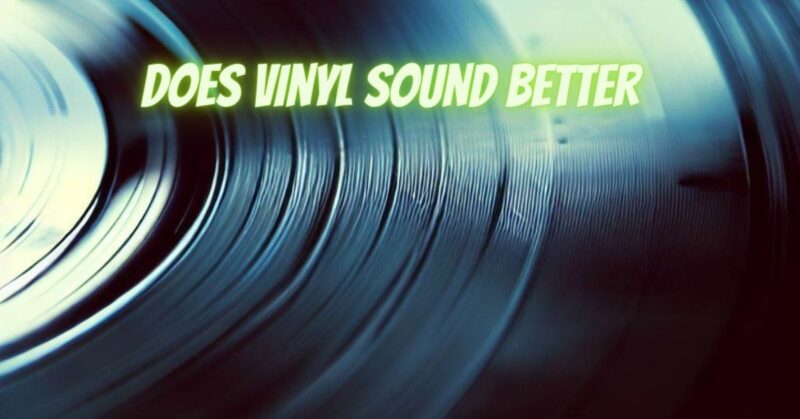Vinyl records have experienced a resurgence in popularity in recent years, with many enthusiasts claiming that the audio quality of vinyl is superior to digital formats like CDs and streaming services. The belief in the superior audio quality of vinyl has become a nostalgic sentiment for audiophiles and music lovers alike. However, is the audio quality of vinyl truly superior, or is it merely a perception fueled by nostalgia and romanticism? In this article, we will delve into the factors influencing audio quality and explore the reality behind the myth of vinyl’s superiority.
Analog vs. Digital: The Audio Format Debate
The debate between analog (vinyl) and digital audio formats (CDs, streaming, etc.) centers around the methods of sound reproduction. Vinyl records are analog recordings, capturing continuous waveforms that directly correspond to the sound waves produced during the recording process. On the other hand, digital formats use a sampling method, converting sound waves into binary code for storage and reproduction.
Perceived Advantages of Vinyl:
- Warmth and “Vinyl Sound”: Many vinyl enthusiasts praise the “warmth” and unique character of vinyl records, attributing it to the analog nature of the format. This warmth is often associated with a slight natural compression and harmonic distortion, giving vinyl a distinct sound.
- High-Frequency Roll-Off: Vinyl records have a natural high-frequency roll-off due to the limitations of the physical grooves. Some listeners prefer this roll-off, as they believe it can reduce harshness in the audio.
- Tangible and Nostalgic Experience: Vinyl offers a tangible and nostalgic experience with large album artwork, liner notes, and the ritual of physically placing the needle on the record.
Reality Check: The Limitations of Vinyl
While vinyl records indeed have their unique charm, it’s essential to recognize their limitations and objectively compare their audio quality with digital formats.
- Noise and Distortion: Vinyl records are susceptible to surface noise, pops, and crackles due to dust, dirt, and scratches. Additionally, vinyl records can suffer from groove wear over time, degrading the audio quality with each play.
- Frequency Response: Vinyl records have inherent limitations in frequency response, especially in the low and high-frequency ranges. This limitation results from the physical constraints of the grooves and the stylus’s ability to track them accurately.
- Dynamic Range: Vinyl records have a limited dynamic range compared to digital formats like CDs, which can impact the ability to reproduce the full range of audio dynamics accurately.
- Inconsistent Pressing Quality: The audio quality of vinyl records can vary based on the pressing quality, manufacturing process, and mastering decisions. This variability can result in significant differences between different vinyl pressings of the same album.
Digital Advancements: High-Resolution Audio
Advancements in digital technology have paved the way for high-resolution audio formats, such as FLAC and DSD. High-resolution audio offers greater bit-depth and higher sampling rates, preserving more audio detail and dynamics than standard CD quality. When played through high-quality digital-to-analog converters (DACs) and amplifiers, high-resolution audio can rival the perceived warmth and fidelity of vinyl.
Ultimately, the perception of superior audio quality is subjective and can vary from person to person. While vinyl records offer a nostalgic and tangible experience, their audio quality is not inherently superior to digital formats. Both analog and digital formats have their strengths and limitations, and advancements in digital technology have closed the gap between the two.
Ultimately, the choice of audio format comes down to personal preference, listening habits, and the specific equipment used for playback. The most important factor is to enjoy the music and the emotional connection it brings, regardless of the format. Whether you prefer the ritual of vinyl or the convenience of digital, both formats offer a gateway to the joy and magic of music.


